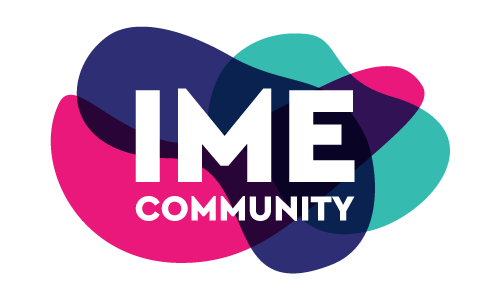
Final Challenge – You Are Lovable Always: IME Reverse Your Insulin Resistance Challenge Week 12
- We are talking Relationships and boundaries for Week 12 of the IME Reverse Your Insulin Resistance Challenge!
- What do relationships and boundaries have to do with reversing your insulin resistance, reaching your health goals and losing weight? I’ve told you before and I’m gonna tell you again this week that taking action on a goal you are setting for yourself is all about your relationship with yourself. You know putting on your oxygen mask first? We have to learn to do that and when we believe or stay attached to fixed and limited beliefs that it’s selfish to put our oxygen mask on first, then we aren’t helpful to anyone.
- Your relationship with food is your relationship with yourself. That’s the most important thing I can coach you on is that you are worthy and 100% lovable now and always.
- We’ve coached on fully loving and accepting ourselves and how self-acceptance is like a warm self-acceptance blanket that is always readily available to you. No action needed ever. Then, we talked about self-love superpower and now we are digging deeper and talking about our relationship with ourselves and others.
- What is a relationship? How we feel about another person is created by our thoughts about them and same with ourselves. Our relationship with ourselves is based on our thoughts and beliefs about ourselves. It also has to do with our expectations we have for other people and ourselves too and if other people meet our expectations we have for them or we have for ourselves. Sounds like lots of judging doesn’t it? Remember, when we are judging others we are often judging ourselves.
Love yourself no matter what Tuesday
- What is unconditional love and how do you have unconditional love for yourself? If you don’t have unconditional love for yourself then you won’t have unconditional love for other people. I know. I know. You’re thinking that it sounds selfish or even self-absorbed or borderline narcissistic to have unconditional love for yourself. But, guess what? That’s only because the beliefs we have about what unconditional love is are off, just like a lot of things we have learned in our society. We don’t challenge or question beliefs that don’t serve us and then we stay attached to those even though they don’t serve us.
- Unconditional love is not an action. It just is. Unconditional self-love is internalizing the belief you are 100% lovable no matter what. That’s it. Having unconditional love for yourself has nothing to do with your achievements, achieving your goals, your weight, your grades, the number of friends you have, nothing. It just is. It’s letting go of beliefs that don’t serve you and having your own back no matter what.
Setting healthy boundaries Wednesday
- First, what is a boundary? It’s not a wall. Boundaries define what is me and what is not me.
- By the way, check out the book, “Boundaries” by Dr. Henry Cloud & Dr. John Townsend. “Boundaries” has been one of the absolutely most helpful books in my life!
- Do you set boundaries for yourself? I coach teens on friend drama, especially on social media. “Why did she block me?” How do you want to show up? Kind and firm instead of feeling like you need to be nice all the time. You may decide and you get to decide if this keeps happening that your boundary is that you decide to let her know that it’s hurtful and there is a consequence, like not engaging in the drama anymore. This is all boundary setting. Her friend is an example of a controller who is someone who doesn’t respect other people’s boundaries. There are aggressive and manipulator controllers and if you are an Avoidant who says no to the good or a Compliant who often says yes to the bad (boundaryless for ourselves), then we are susceptible to the controllers.
- Did you know we were created to have boundaries and boundaries are not selfish. It’s not mean to set and follow through on a boundary. It’s more mean, especially to yourself, to not set and follow through on boundaries. Boundaries are powerful and a part of self-love superpower and loving others. Setting healthy boundaries is a part of creating healthy relationships and loving others.
- What are examples of boundaries? “Boundaries are anything that helps to differentiate you from someone else, or shows where you begin and end. Physical boundaries: Skin; Words; Truth; Geographical Distance; Time; Emotional Distance; Other people (Like IME Community); Consequences
Stay in your lane Thursday
- I’m sure you’ve heard and have been told to mind your own business. It’s actually super helpful, but doesn’t come that easily, at least not to me. I hated it when I was little and my Mom would say, “Just mind your own busines.”
- One of the most important coaching sayings I learned was, “Stay in your lane”. Have you been learning to drive? Not there yet? Well, you get the gist of “Stay in your lane”, I’m sure.
- One of the ways that we can cause ourselves a lot of unnecessary drama in life, and we all do this, is to live in other people’s business. When we are not tending to our business and are instead in other people’s lanes, that’s when we can get into accidents. We don’t control other people and they don’t control us. Quite frankly it’s a relief. Let people be wrong about you and let people be who they are, because they are going to be who they are whether we like it or not.
Let go of The Checklist for TGIF
- Have you heard of what I call The checklist? Probably not because I made it up. The Checklist is when we have a list of expectations for other people and often for ourselves and we walk around with a clipboard (not really, just giving you a powerful visual here) and judge and check off whether they arise to our expectations or not. We believe that other people are responsible for what we think and feel and our results. It’s a way to blame other people or make it mean that we have more evidence that something is broken or wrong about us.
- When you have expectations for others and ourselves and we put conditions on loving other people and ourselves based on whether they or we arise to our expectations. Here’s the news for the day: You are powerless over others. Completely powerless. Having expectations of others is okay except when you put conditions on it and spend your time trying to navigate and control others because you believe what they say and how they behave will make you feel a certain way or help you avoid making you feel a certain way. But, guess what? That’s not reality. Your thoughts create your feelings, not the actions of anyone else.
Stop your people pleaser ways Saturday
- People pleasing is not selfless. It’s actually selfish. Can you believe it? It’s all about you and you controlling others. Guess what? I’m a huge people pleaser, or at least I have been a huge people pleaser for a long time, until the magic of coaching and I got called out. It’s a pattern I learned from when I was growing up. Maybe you too. It was my role and I thought was a good way to show up.
- Try this non people pleasing belief upgrade: “The only person I have to please is myself!”
Self-appreciation Sunday
- What do you appreciate about yourself?
- Make a list of all of the things you appreciate about yourself. Let’s try at least 10 different ways you appreciate yourself. Write it down and keep it available to you so you have evidence of your unconditional self-love and appreciation.
- Here’s your playlist for the week
- “Shake It Off” by Taylor Swift
- “Brave” by Sara Bareilles
- “New Rules” by Dua Lipa
- “Stronger” by Kelly Clarkson
- “Feeling Myself” by Nicki Minaj feat. Beyonce
You are 100% lovable, always and forever.
Self-love superpower,
Dr. Karla
Watch the Video Replay
Previous: Week 11 – Stress Less Sleep More
Reverse Your Insulin Resistance Challenge Table of Contents
Week 1: Introduction
Week 2: Why Do We Overeat?
Week 3: Coping with Food Cravings and Urges
Week 4: How Much Physical Activity Is Enough?
Week 5: Social Media Friend Drama
Week 6: Get to Your Natural Weight Set Point
Week 7: Your Metabolic Health
Week 8: Positive Body Image
Week 9: Diffusing Low Carb Confusion
Week 10: Self Love Superpower
Week 11: Stress Less, Sleep More


